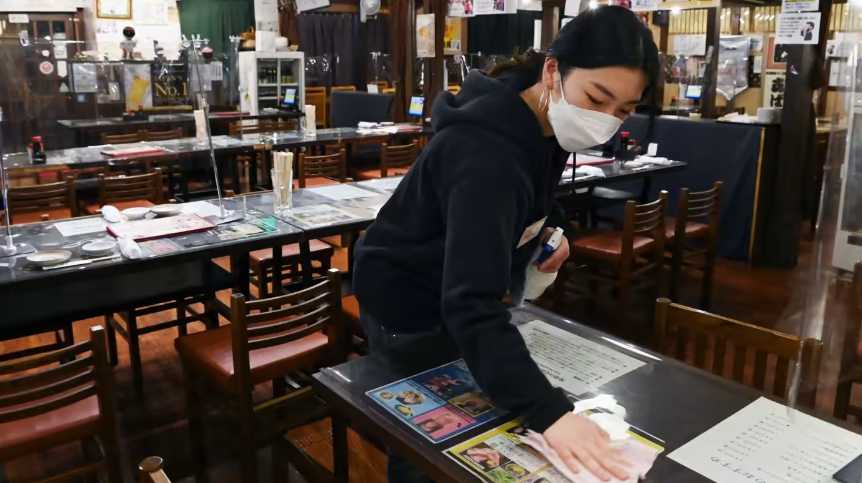In recent years, Japan has witnessed a significant surge in the number of “spot workers” – individuals who engage in work during their free time, seamlessly balancing it with their primary jobs and household responsibilities. This unique work style has gained immense popularity due to the flexibility it offers, allowing individuals to choose when and where to work through dedicated apps. This shift in the employment landscape is not only reshaping traditional work norms but is also providing a new pool of human resources for industries facing labor shortages, particularly in the wake of the post-COVID-19 recovery.
At The Akachochin, a Japanese-style pub in Tokyo’s Shimbashi area, the entire part-time staff operates as on-demand spot workers. This innovative collaboration between staffing agency Timee and restaurant operator Minadein serves as a beacon for a pioneering approach to hiring and training human resources. To create an accessible workplace environment for newcomers, the companies have developed specialized work manuals and supporting tools, streamlining the onboarding process.
Unlike traditional part-time roles, spot work lacks a continuous employment commitment. Through Timee’s service, individuals meeting specific work conditions can promptly start work for periods as brief as one hour, eliminating the need for a conventional interview process. This flexibility has been a game-changer for individuals like a woman in her 30s from Kanagawa Prefecture, who has embraced spot work on weekends while maintaining a regular weekday job.
According to the Japan Spot Work Association, the number of registered members across major staffing companies, including Timee, reached approximately 10.7 million as of May this year – a remarkable increase of about 3.2 times from the end of 2019. This diverse demographic includes students, company employees, full-time housewives, and stay-at-home husbands. The broad utilization is attributed to the relaxation of company restrictions on side jobs, coupled with the impact of the COVID-19 pandemic on business closures and reduced operating hours.
The adoption of spot workers is widespread, with more than 46,000 businesses signing up with Timee. In July, job openings for light work roles at distribution facilities accounted for about 50%, while the number of job openings at restaurants and hotels surged, indicating a recovery in tourism demand.
Unplan Shinjuku, a lodging facility in Tokyo, embraced spot workers in response to heightened job turnover during the pandemic. With guest numbers now restored to pre-pandemic levels, the facility uses spot workers daily for tasks such as cleaning guest rooms, allowing them to sustain business operations with a small staff.
In rural areas facing challenges in securing workers, a unique service called “Otetsutabi” is gaining popularity. This service involves tourists assisting with various tasks at accommodation facilities in exchange for accommodation and compensation. As of July, the number of registered accommodation businesses increased by about 50% from the previous year, showcasing the positive impact of spot workers in addressing labor shortages.
While the spot worker industry is still in its developmental phase, it faces challenges such as confusion among workers due to unclear contracts and companies’ inability to assess workers’ personalities and skills in advance. The Japan Spot Work Association plans to address these issues by establishing a qualification system for job brokers, aiming to provide both workers and companies with a greater sense of security when engaging with the spot worker system.
The rise of spot workers in Japan represents a transformative shift in the country’s work culture, offering flexibility to individuals and addressing labor shortages in various industries. As the industry continues to evolve, efforts to address challenges and create better work environments will be crucial in ensuring the sustainable growth of this innovative and adaptable employment model.
(Source: JIJI | Japan Times)









